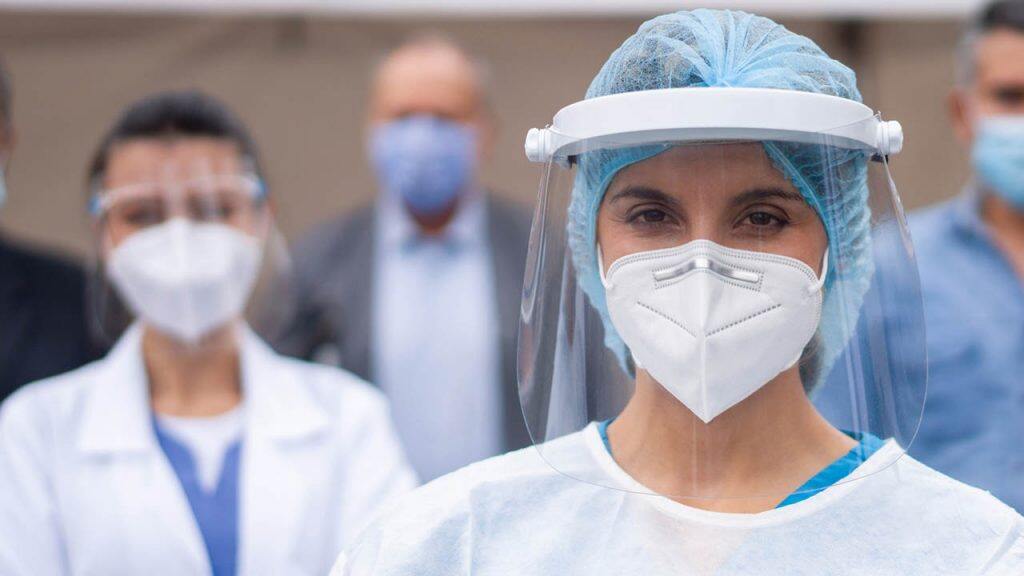Opinion: Nurses Natalie Anderson, Wendy Sundgren and Bridget Venning from the University of Auckland School of Nursing reflect on their role in Covid times.


Covid-19 has changed the face of emergency nursing forever. While nurses are grateful for a ready supply of personal protective equipment and improvements in infection control procedures, it has created barriers to more than just the virus. Our faces – essential tools for connection, communication and reassurance – are now obscured by masks and eye protection. We miss friendly smiles, subtle facial expressions, low voices, and lip reading.
Voices are raised now. Voices of distress and outrage in response to long waits, uncertainty, isolation and separation from family. Voices of bewilderment and frustration associated with hearing impairment or confusion of the elderly, or a young child’s fear of the masked face.
Behind the mask, there is a lot more to our story. While we appreciate the sentiment of being marked as the heroes and angels of this global pandemic, these labels fail to recognise what we do or how we got here. Contrary to popular belief, few nurses feel a ‘calling’, and none is born with superpowers. Expert nurses are the product of years of professional development and skill acquisition.
Collectively, we three authors have accrued 46 years’ nursing experience and nine university degrees. This hard-gained expertise has helped us minimise the substantive risks posed to our patients, colleagues and country over the past two years. Frustratingly, the judgement required to navigate this level of complex, high-stakes decision making often goes unrecognised.
THE MINDSET OF AN EMERGENCY NURSE IS TO CRACK ON AND GET THE JOB DONE. COVID-19 HAS NOT CHANGED THIS.


One size doesn’t fit all. Mask-wearing policies often can’t be enforced with intoxicated, confused and distressed patients. Visitor restrictions require expert negotiation, considering the essential role of whānau as caregivers, interpreters and sources of patient history. In the past, patients have been cared for within the Emergency Department, though sometimes in chairs and corridor spaces.
As Omicron surged in Auckland, we had to determine which patients could be safely managed outside in a tent, building overhang or even in their car. Concepts of utilitarianism and distributive justice inform our everyday practice in these extraordinary times.
Our friends and whānau express their gratitude and sympathy and sometimes ask us what is hardest about emergency nursing during a pandemic. They assume the added challenges to our inherently chaotic work environment weigh the heaviest on our minds. In fact, what is hardest is our concern for the future of our profession. The pandemic has disrupted the education, support and career progression of nurses. An ‘all hands to the pump’ deployment to clinical areas seemed reasonable at the outset of the pandemic.
However, it has evolved into years-long deprioritisation of nursing research, quality projects, education, and other professional development. We are concerned that Covid-19 will have a long-lasting adverse impact on nursing well-being and workforce development, as seen overseas.
During this pandemic, there has been a lot of talk of beds and health system capacity, but without sufficient nursing staff, there is no care in healthcare. Fortunately, the mindset of an emergency nurse is to crack on and get the job done. Covid-19 has not changed this. Around the country, many emergency departments were short of nursing staff before this pandemic hit.
At the height of community spread, staff burnout and sickness affected all emergency care staff, including our orderly, phlebotomy, cleaning, clerical and medical colleagues. The surge capacity of our health system is highly dependent on the goodwill of nurses. We are proud to be nurses and proud of our colleagues’ resilience and adaptability in the face of unrelenting pressure and constant change, but a significant investment in our future nursing workforce is desperately needed.



































